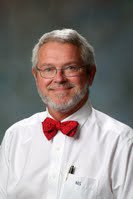Is Your School a Marketplace of Ideas?
World events, particularly those involving war, are always more complex than we would prefer. Even the very best reporting on (for example) the Syrian civil war tries to force a reading where we only must choose in a contest between the good guys and the bad guys. The ease of naming the good guys and the villains in an old Western is something that we relish. The Star Wars franchise speaks to this same desire for simplicity. I am convinced that if one asked most Americans why we rebelled against England for our liberty, most would correctly-but-only-partially answer “taxation without representation.” Some history buffs might recall the “Quartering Act” or the “Proclamation of 1763” or the influence of John Locke’s “Social Contract”. While all of these things are true, they only tell part of the story.
It’s frustrating. Life would be so much simpler if there were no gray areas! Unfortunately there are many who, in a mad rush to simplify complex issues, enter a state of bigoted denial that readily assigns the white-hat and black-hat labels on any popular issue. One example that comes quickly to mind is the current state of American politics. For the last thirty or forty years our two-party political system has marched inexorably toward a polarization on social issues: Democrats are liberals; Republicans are conservatives. It’s simple and straightforward. We can very easily choose what side to support. It’s what we were aiming for. We have arrived!
And who is happy with arriving at this destination?
Schools are not unique in being a possible site for the marketplace of ideas, but they are eminently well suited to the task. Effective reading, writing, speaking and listening are celebrated elements of the best schools. When the English philosopher John Stuart Mill first proposed that ideas could be treated as a commodity, it was a revolutionary thought. Today, thanks to the internet, we take it for granted. I would warn that we do this at our peril. Well considered ideas are certainly different than bigoted opinion. There are many sides to every story, and it requires virtuous tolerance to listen to all sides before reaching a conclusion. It requires respect. It requires a certain humility.
The mere spouting of an uniformed opinion is vulgar. It is common. It is manifestly not what most people want in an educated electorate. In his lovely poem A Prayer for My Daughter, William Butler Yeats admonishes us: “Ignorance and hatred are the wares peddled in the thoroughfares.” This may be true, but let it not be true in our schools.













